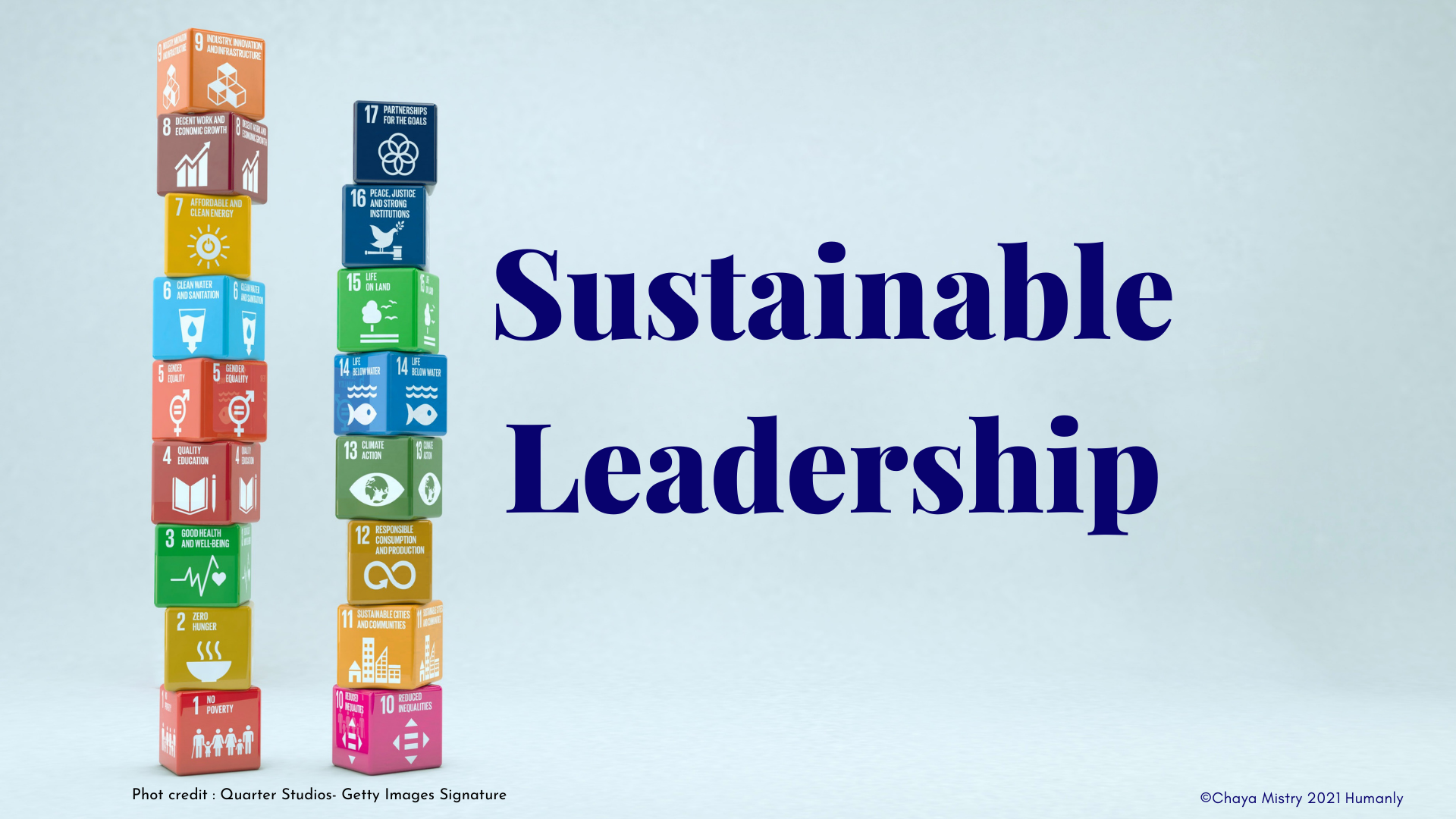Sustainability and Compassionate Human Leadership
Photo Credit Quarter Studios- Getty Images Signature
The Sustainable Development Goals (SDGs) are a collection of 17 interlinked global goals designed to be a "blueprint to achieve a better and more sustainable future for all". They set out a path that helps us to tackle some of the biggest challenges that humans on earth face today.
But a plan that throws up many questions.
If we wish for peace and prosperity, can we continue to seek profit at the expense of people and the planet? How can organisations bring these ambitions into reality? To tackle the sustainability goals, no individual or organisation can do it alone, we need partnership and mass behaviour change, that requires a certain type of leadership.
A recent study found that,
92% of CEOs believe integration of sustainability is critical to business success
48% of CEOs are actually integrating sustainability into their operations
and only 21% of CEOs believe business is currently playing a critical role in achieving the SDGs
If we know that sustainability is critical, we write it into strategies and plans, but we need it to translate into real behaviour changes. It means breaking through cultures and norms, systems and ultimately this comes down to leadership.
How can corporate leaders step up to the challenge and drive systems change?
A new model of leadership is needed. This was the topic of a symposium I attended in May, hosted by The Rotterdam School of Management (RSM), This event set out a challenge: “The private sector’s active involvement is vital in this ambition. But progress is too slow – not because of a lack of intentions, but because of the serious gap in developing advanced strategies in realising the SDGs. It’s difficult to integrate SDGs in core business. So, can corporate leaders step up to the challenge and drive systems change?”
Here are some of the highlights that I wanted to share with you in the hope that it provides as much food for thought as it has for me.
We must rebalance the focus on Profits towards the rest of the triple bottom line. People and Planet
The challenges are complex, dynamic and disruptive, so linear, analytical thinking will not solve the problems.
Instead…
We need conceptual ideas and vision, human and compassionate leadership
The say-do gap. There is a serious gap what organisations say they want to achieve, the strategies in realising those ambitions and actually integrating them into core business.
More food for thought…
To solve climate change, we need the whole of humanity. Climate change is an open-ended problem. There is more than one way to go forward. It is hard to agree on what to take into account and leave out. It is even harder to ensure that everyone who is impacted has a say. Inclusion is a huge and complex task- Krasi Bozhinkova
It is time to create and strengthen compassionate leadership. Kailash Satyarthi, Social Reformer and Nobel Peace Laureate 2014;
He introduced me to this mind blowing phrase
The supply chain of gratitude,
The global economy is highly connected, yet also highly unfair and unsustainable. There are many “externalities”, both human (low wages, human rights violations etc.) and environmental (carbon, pollution, loss of biodiversity, loss of health etc.) that do not show up in the price of the product. The modern customer does not know the true cost of what he consumes. Let alone that he knows whom he should be grateful for - all those people and resources that made the product possible.
REFLECT: Follow the supply chain for your business and find gratitude. Follow your personal supply chain. From the growers of the coffee you drank this morning to the makers of your shoes and clothes, their contributions are invisible. By making them visible we can appreciate them.
Leading from a place of gratitude and appreciation is stronger than leading from a place of fear and power.
We need Human Leadership, compassionate, purpose driven, emotionally intelligent, courageous and curious. So let’s work towards building that!
Make it stand out
The Inner Development Goals (IDG’s) are five categories of 23 skills and qualities that help us to grow and change from the inside, so that we can make a positive change in the world and society.
The framework represents the skills and qualities which are especially crucial for leaders who address SDGs, but fundamentally for all of us!
Do you need more support?
Do you want to talk about developing the human leadership mindsets and skills for you or your team?
Lead and communicate from a human viewpoint in a more human way.



